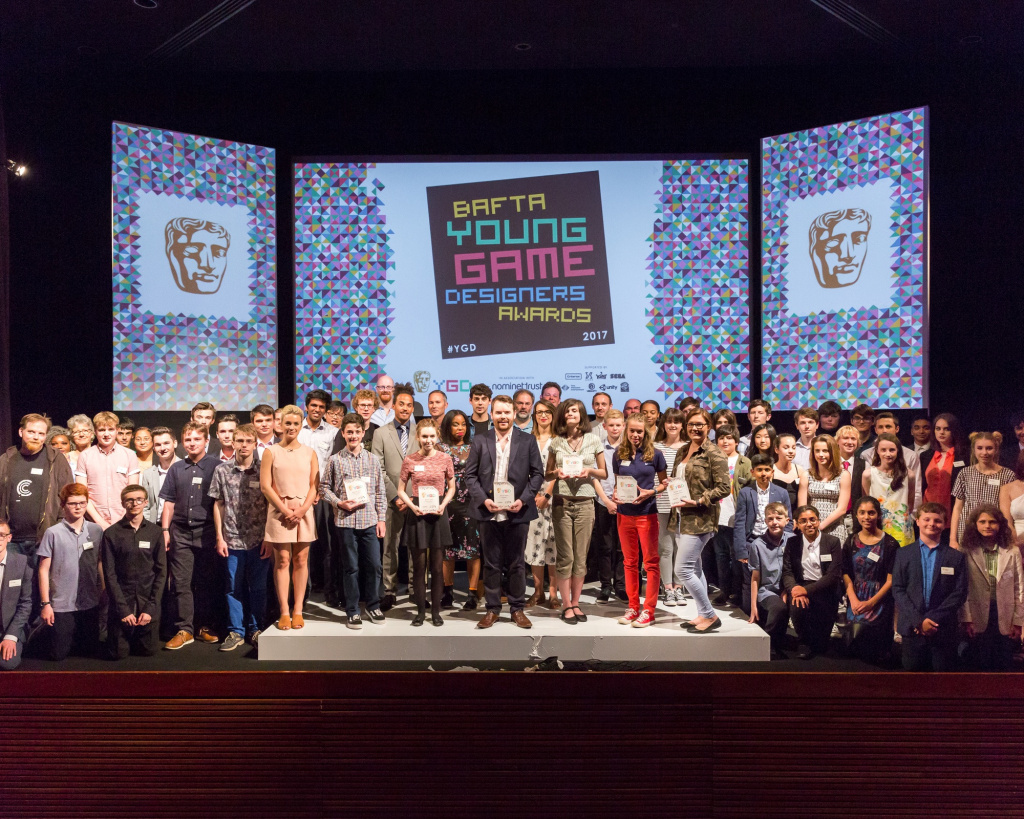
As an organisation that cares about creative excellence, BAFTA feels that it is important to foster and value creativity in young people. The creative industries contribute a huge amount to the cultural, economic and social life of the UK and the games industry is a significant part of that picture. In 2017 UK consumers spent £3.35bn1 on boxed, downloadable and mobile games, significantly more than music and DVDs, and the artistry and innovation for which games are known can be seen to influence many other aspects of our culture. There are more than 2,000 UK games companies, and it is a dynamic, innovative and fast-changing sector where the right technical and creative skills are essential to remain competitive.
At BAFTA we believe that encouraging young people to get involved in game creation can develop vital transferable skills and open up a variety of career opportunities. This is why we set up BAFTA Young Game Designers in 2010. We wanted to demonstrate the creativity that goes into games, and to give young people and their teachers, a clearer understanding of the many rewarding careers to be had within the industry.
What the competition involves
Young Game Designers (YGD) aims to inspire young people aged 10 to 18 to design and make their own games. The competition is designed to nurture the creative talent of young people who could be the games designers of the future. It introduces young people to this exciting sector through two categories, which are split into age brackets of 10 to 14 years and 15 to 18 years:
- Game Concept Award – for entrants who want to create a concept for a new game
- Game Making Award – for entrants who want to make a game using freely available software
More than 40 finalists are invited to a special awards ceremony in July at BAFTA’s headquarters in London, attended by stars of the games industry, TV and radio. The young winners receive a host of prizes including games, hardware, software licences, tours of games studios and 12 months’ support from industry professionals to develop their game ideas.
In addition to the categories for young people, the Mentor Award, which is nominated by the public, is for an inspirational individual involved in the education of young game designers. In past years this has been awarded to a teacher who has shown real passion and dedication for game making and design.
Working with schools and educators
The current computing curriculum allows room for students to incorporate their own interests in gaming, and teachers play a key role in encouraging young people to think about game design. For many teachers, game development can be a challenge to fit into the curriculum and therefore, the competition is designed so that teachers can incorporate it easily into their teaching. In addition to the BAFTA YGD School Resource Network that will be launched later in the year, teachers can download ten weeks of lesson plans and worksheets that cover aspects such as idea generation, goal setting and overall project management, as well as technical aspects such as user experience and sound capture. The lessons and the competition are modelled on the industry’s own game development processes, which means that young people are taken through the whole process, from idea generation and platform development, to marketing and engagement. The breadth of skills often surprises both students and teachers, and entrants are able to develop soft skills such as team working, creative thinking and problem solving, skills that are highly valued by the games industry.